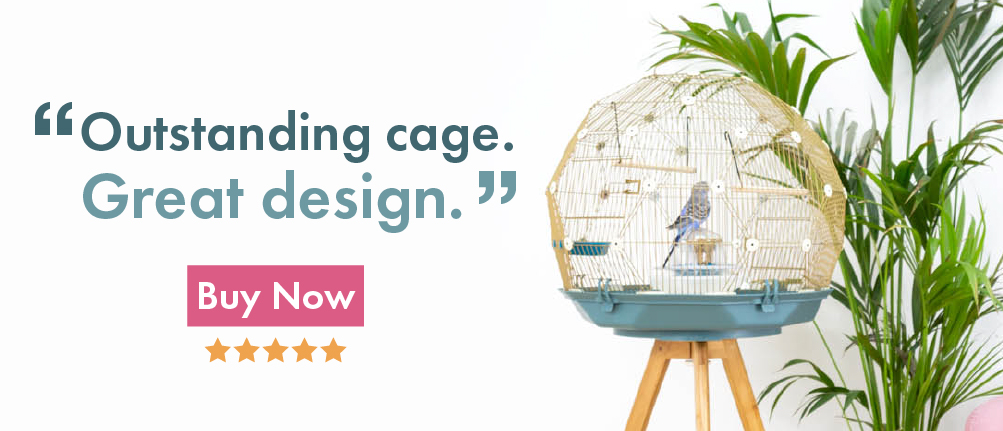A majority of cages will come with at least one perch, usually made of plastic or dowelling. These perches are more often than not perfectly acceptable and will be fine for your birds. It is however possible to make your own perches from standard wooden dowels available at DIY and hardware stores. Around half an inch in diameter will be needed.
Bear in mind that in the wild these birds will use tree branches as perches. This is probably the most ideal form of perch for them as the coarse wood helps stop their nails from growing out too much. If you opt to gather some branches and use them as perches for your new birds, be sure to give them a good wash beforehand. In most cases plain water and a vegetable brush will be enough. You can pour boiling water over the wood to be completely sure that it's fully clean. The branch will have to be completely dry before you place it into the cage. Again remember that the branch should be half an inch in diameter.

Strawberry finch - perching space is one of the core requirements of a bird cage
A branch can be attached to the side of a cage using large washers. The branches do not have to stretch from one side of the cage to the other, though it is completely fine if it does.
Rope perches, or anything else that is made from fiber, should be avoided, as small birds cna often snag their toes in them. Sandpaper perch covers are often found in pet stores too, whilst they do help prevent overgrowth in the bird’s toenails, they can irritate and scratch the bird’s feet in the long run.
As well as rounded perches, you can also purchase ones with a flat surface. This adds a bit of variety to the bird’s cage. A 1.5-2 inch wide shelf will be ideal as finches do like to uncurl their toes every once in a while.
Safe Wood for Bird Perches
The following are all safe woods that can be used in your canary or finch cage. Whilst this isn’t a complete list, it does cover a lot of the natove and commonly found types of wood. Some woods can be toxic for the birds so be sure to look it up before placing a new perch into the cage.
- Alder
- Almond
- Apple
- Ash
- Aspen
- Bamboo
- Barberry (berberis)
- Birch
- Beech
- Crabapple
- Dogwood
- Douglas fir
- Elm
- Fig
- Ginkgo
- Grape vines
- Hawthorn
- Hibiscus
- Hickory
- Larch
- Lilac
- Magnolia
- Maple
- Manzanita
- Mountain ash (rowan)
- Mulberry
- Pear
- Poplar
- Pussy willow
- Rose
- Scots pine
- Spruce
- Sycamore
- Vine maple
- Willow
- Yucca
It’s important that any wood you use is free of insecticides, fungicides and other toxic sprays.





Comments
There are no comments just yet